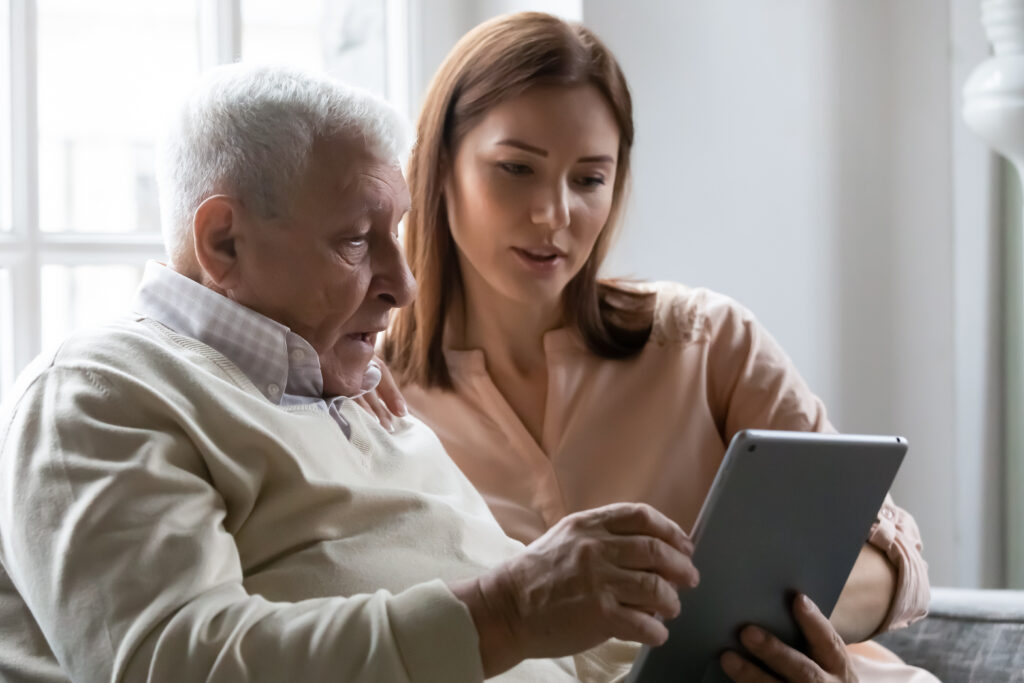The elderly, because of their contribution to society and their stage of life, can access various aids and subsidies that seek to improve their well-being and quality of life. These measures seek to ensure that senior citizens have the necessary resources to face the challenges of aging, thus promoting a dignified and active retirement.
In addition to state aid, there are also non-profit organizations and foundations that offer specific programs for the elderly. These can range from legal advice to recreational activities, promoting social participation and community integration.
In addition, some financial institutions and private companies offer exclusive discounts and benefits for seniors on services such as health insurance, travel and entertainment. Together, these grants and subsidies constitute a comprehensive support network that recognizes and values the continuing contribution of the elderly to society.
Financial benefit for people over 65 years of age without a pension.
The financial benefit for people over 65 years of age without a pension is a financial support mechanism designed for people who have reached retirement age but do not have a pension or sufficient income to cover their basic needs.
The amounts of this benefit vary by country and specific legislation, but are usually designed to cover essential expenses such as food, housing and medical care. Eligibility requirements may also vary, but usually include a minimum age of 65, lack of sufficient income and, in some cases, legal residence in the country concerned.
Those eligible for this benefit are generally elderly people who do not have access to a contributory or non-contributory pension. In many cases, those who have not contributed enough to receive a standard pension are considered eligible.
Application for this benefit is usually made through the government agencies responsible for social security or social services. Applicants must provide detailed information about their income, family situation and other relevant aspects to assess their eligibility.
Electricity social voucher
The bono social eléctrico is a benefit aimed at facilitating access to electricity to those people in a situation of economic vulnerability. This program aims to provide discounts on the electricity bill, thus alleviating the economic burden for households with fewer resources.
The amounts and specific requirements of the electricity social voucher may vary according to the legislation of each country. In general, the discounts applied to the electricity bill are proportional to the degree of vulnerability of the beneficiary. Common requirements include income and family situation criteria, such as the number of members in the household.
Those eligible to receive the bono social eléctrico are usually people who are in a situation of economic vulnerability, such as large families, low-income pensioners, unemployed, among others. Eligibility is determined by assessing family income and circumstances, and may vary depending on each jurisdiction.
The application is generally made through the electric companies or government agencies in charge of energy regulation. Applicants must provide the necessary documentation supporting their financial situation, and the granting of the benefit is subject to review and approval by the competent authorities.
Rent assistance for people over 65 years of age
Rent assistance for people over 65 years of age is a benefit designed to financially support this segment of the population, especially those who face difficulties in covering housing costs.
The amounts of this assistance and the specific requirements may vary from country to country and region to region. Generally, the income of the applicant and his or her family unit, as well as other economic factors, are taken into account. The aim is to ensure that the assistance goes to those who really need it.
Those eligible for this assistance are usually people over 65 years of age who live in a rental situation and who meet the economic requirements established by the competent authorities.
Application for this assistance is made through local government housing agencies or social services. Documentation supporting the applicant's financial situation, such as income statements, rent receipts and other relevant documents, is required.
Financial aid for people with degree of dependency
Financial assistance for people with a degree of dependency is designed to provide financial support to those individuals who, due to their health and dependency situation, require assistance in carrying out basic activities of daily living.
The amounts of this assistance vary according to the degree of dependency of the person, which is usually assessed by means of a rating system established by the competent authorities. This system classifies beneficiaries into different degrees of dependency, from moderate to severe, thus determining the amount of financial assistance they will receive.
The requirements for accessing these grants usually include certification of the degree of dependency, which is obtained through an evaluation carried out by social services or health professionals.
Those eligible for this assistance are generally people with a recognized degree of dependency, regardless of their age. In addition, in some cases, the economic situation of the beneficiary and his or her family is considered in determining the level of financial support to be granted.
Benefit for care of dependent persons in the family environment
The allowance for care of dependents in the family environment is a measure designed to provide financial support and resources to those who assume the responsibility of caring for dependent family members in their own home.
This financial support can be used to cover expenses associated with care, such as medications, specialized medical equipment or home adaptations to ensure the safety and comfort of the dependent.
The requirements to access this benefit are usually linked to the degree of dependency of the person to be cared for and the economic capacity of the family providing the care. In many cases, an assessment is made to determine the specific needs of the dependent and, based on this assessment, the level of benefit to be granted is established.
Individuals eligible for this benefit are those who assume responsibility for the care of dependent family members in their home. This may include parents caring for children with disabilities, spouses assisting their partners, or any other scenario in which a family member assumes the primary role of caregiver.
The application for this benefit is generally made through the social or health services of the public administration. Applicants must provide detailed information on the medical and economic situation, as well as comply with the requirements established to receive the benefit.
Financial allowance for care of dependent persons in private services
The financial benefit for care of dependent persons in private services refers to a type of financial assistance intended for those individuals who, due to their dependency and need for specialized care, require care in private entities or services instead of receiving it in the family environment.
Generally, financial assistance is intended to cover the costs associated with care in private services, which may include specialized residences, day centers, home nursing services or other private services that provide care tailored to the specific needs of the dependent person.
Eligibility for this benefit is usually related to the degree of dependency of the individual and his or her financial situation. Assessment of the dependent's specific needs is crucial to determine the amount of financial assistance needed and to ensure that resources are used effectively to provide the best possible care.
Individuals eligible for this benefit are those who need specialized care and have chosen to receive it through private services. This may include elderly people with complex medical needs, individuals with disabilities who require ongoing care, or any other situation in which care in the home environment is not sufficient.
The application for this benefit is generally made through the social or health services of the public administration. Applicants must provide detailed information on the medical and economic situation, as well as comply with the requirements established to receive the benefit.
In conclusion, the choice of Sicor telecare El Corte Inglés as an option to care for the elderly or people with some degree of dependence stands out for its commitment to quality and personalization of care.
With Sicor telecare El Corte Inglés, an exceptional standard is set in the provision of services for those who require assistance, guaranteeing a safe, respectful environment, adapted to the particularities of each dependent person.

